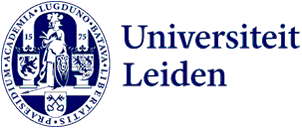Panel discussion
Navigating the Turn to the Indo-Pacific: Perspectives from South and Southeast Asia, and the Netherlands
- Date
- Tuesday 24 September 2024
- Time
- Address
-
Wijnhaven
Turfmarkt 99
2511 DP The Hague - Room
- A2.01
In recent years, the world has turned its attention to the 'Indo-Pacific' due to the changing power dynamics in the region, alongside its growing geopolitical and geo-economic importance. The US 'pivot' and the EU's 'turn' to the Indo-Pacific are a recognition of the region's critical role in the world order.
As the Indo-Pacific becomes a focal point for strategic competition and cooperation, understanding the reasoning behind this development, the accompanying changes, and significant impact on countries of South and Southeast Asia becomes essential.
The panel discussion is organised to engage precisely with these issues. Through insights from diplomats and academic experts, the panel discussion aims to facilitate an understanding of the evolving geopolitical, geo- economic, and security environment in the Indo-Pacific, exploring particularly why this evolution is taking place and how certain key states and actors are navigating this new reality. The moderator and panellists include representatives from the Embassies of India and the Philippines, the Netherlands Ministry of Foreign Affairs, and Leiden University.
About the speakers
MODERATOR
Mr. Richard Ghiasy, Senior Fellow, Leiden Asia Centre
PANELISTS
• Embassy of India: Mr. Gince Kuruvilla Mattam, Deputy Chief of Mission
• Embassy of the Philippines: Mr. Jarie Osias, First Secretary and Consul
• Netherlands Ministry of Foreign Affairs: Ms. Sunita Verlinde, Strategic Policy Adviser Indo-Pacific & Indo-Pacific Envoy
• Leiden University: Dr. Nicolas Blarel, Associate Professor, Institute of Political Science
This panel discussion is organised by the BA International Studies, in partnership with the Leiden Institute for Area Studies (LIAS), Conflict, Conflict Resolution, and Crisis Management Research Cluster, and Leiden University Centre for International Relations (LUCIR).

